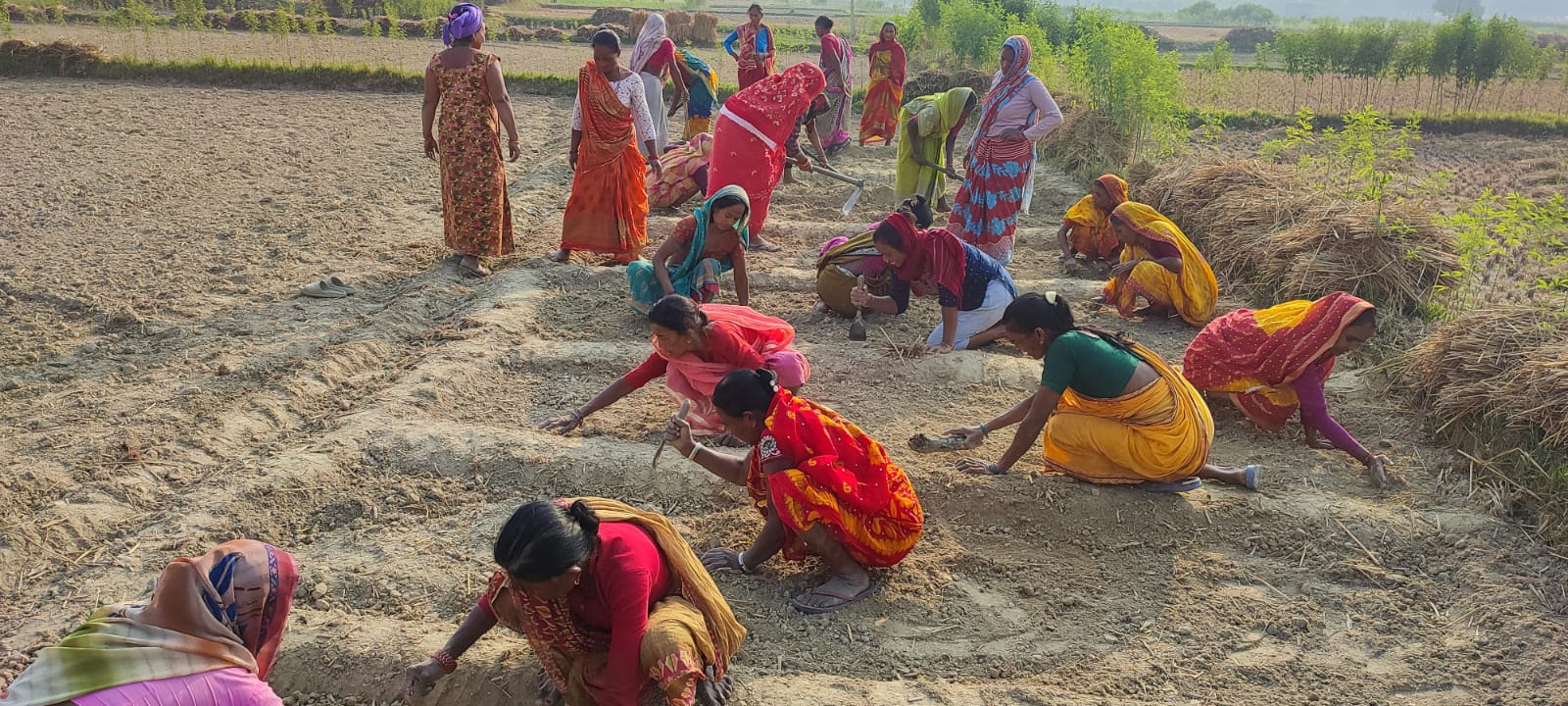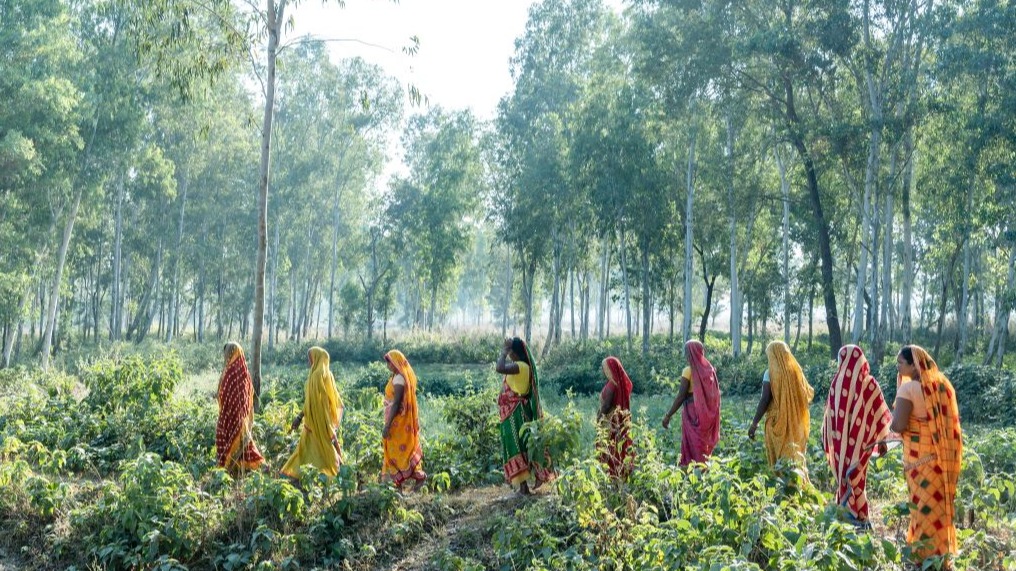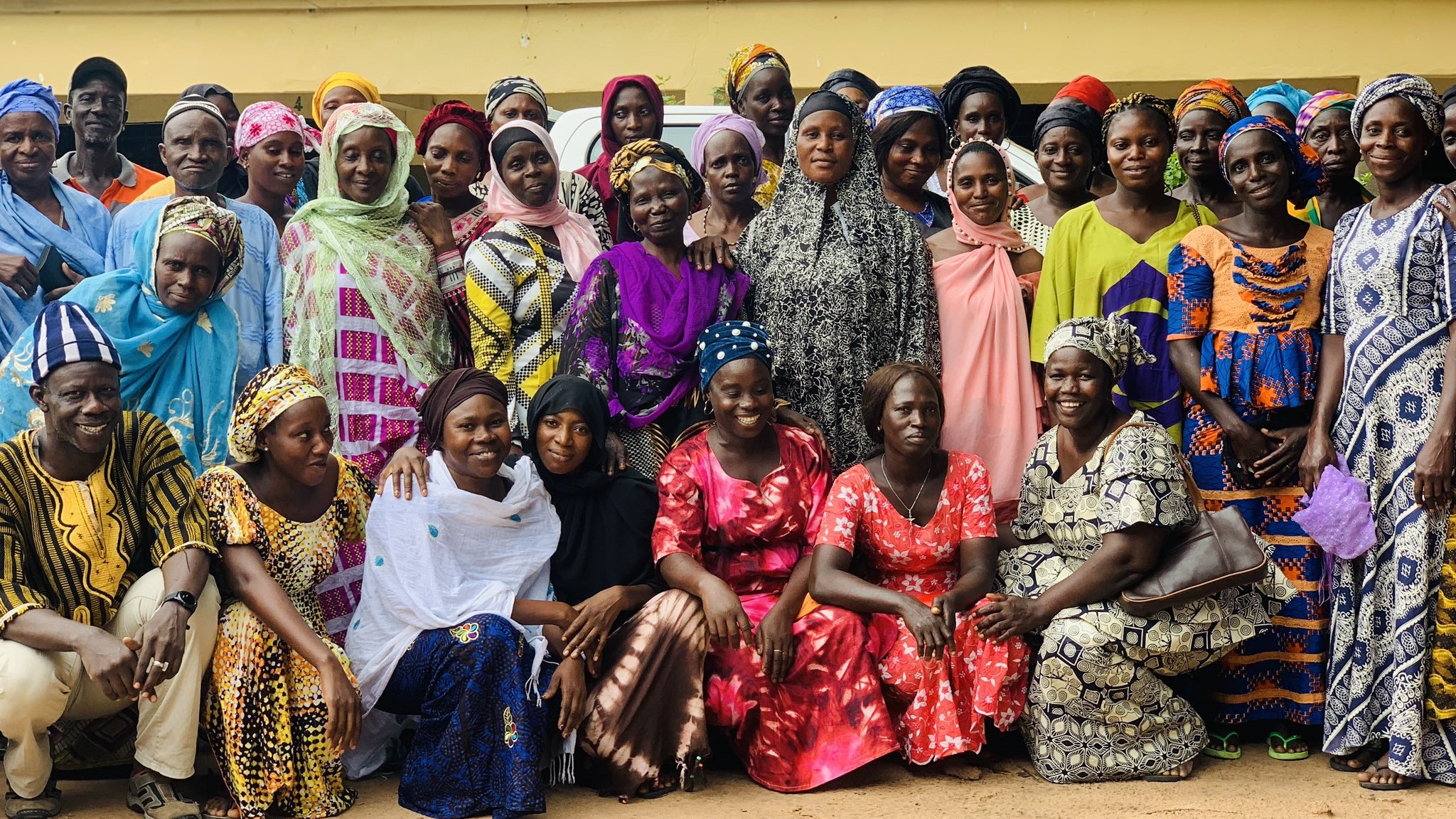Can climate finance move the needle on gender equality?
FAO-led Green Climate Fund projects are empowering women and promoting gender equality in Nepal and The Gambia

Women at a farmer field school prepare a bed for onion seeds in Nepal
©FAO/Nepal
Today, 1 in every 10 women lives in extreme poverty without equal access to land, markets and natural resources, which are critical for food security, income and well-being.
Climate change amplifies gender inequality and discrimination: The more dependent disadvantaged women are on natural resources, the more vulnerable they are to extreme events, such as tropical cyclones, drought, flooding, heat waves, and wildfires.
FAO and the Green Climate Fund (GCF) mobilize finance and expertise so countries can mainstream gender equality into the agriculture, forestry and fisheries sectors while addressing the pressing impacts of climate change. Here are two examples of how climate projects in Nepal and the Gambia are turning investments into opportunities for more just and sustainable agrifood systems.
Farmer field schools upgrade women’s skills in Nepal
At the southern foothills of the Himalayas lies a region known as the Churia Hills, where twenty-six river systems flow through forests down to the fertile and cultivated Terai plains.

Women in Nepal's Churia Hills rely on the forest and river systems for their livelihoods. ©FAO/Nepal
Here the communities – including marginalized women and Indigenous Peoples – depend on forests for basic goods and services, from fuelwood and water for cooking to fodder for livestock.
But unsustainable land use practices leave forests and ecosystems without their defences: With fewer trees to stabilize soils and steep slopes, the hills and its people are more exposed to the devastating impacts of climate change, such as extreme rainfall, flash flooding and drought. To help restore degraded forests and improve livelihoods, FAO is working with the Government of Nepal on a GCF project that uses model famer field schools to empower women as decision-makers in sustainable natural resource management.
Gita Adhikari, from the Arjundhara Rural Municipality, is one of the participants who inspires other women to try nature-based farming practices in the peer-to-peer setting, from making liquid fertilizer and compost with livestock urine and dung, to planting fodder trees and using mulching techniques to conserve soil moisture.
“By applying what we learned in the training centres, we were able to nearly double our harvest,” says Gita, who shares good practices and experiences with other women in her community.
To date, 24 of the 120 planned farmer field schools have been set up under the project.
Better livelihoods with healthier mangroves in the Gambia
The Gambia is a small, low-lying coastal nation in sub-Saharan Africa that is rich in biodiversity as well as terrestrial, coastal, marine and wetland habitats; but it is also one of the most affected by land degradation, deforestation, and climate change.
In earthy-green mangrove forests along the Gambia River and Atlantic Ocean, where trees’ roots create elaborate shapes to breathe above the brackish waters, women harvest oysters and other molluscs to be sold at the market.
These mangrove forests provide essential services for people and nature: They are not only vital breeding grounds for major shellfish and fish species, but also provide flood protection, erosion control, and coastal storm defence, which buffer against the impacts of climate change.
But deforestation has led to the loss of about 1 080 hectares of mangroves each year over the past 30 years.
To restore nature and improve livelihoods, FAO and the Government of the Gambia are implementing a six-year, GCF project that engages coastal communities in sustainable fisheries and restoration activities across 2 300 hectares of mangrove forests.
So far, three hundred women from the Gambia’s west coast, lower river and north bank regions have learned practical skills in cultivating oysters and other molluscs, such as safeguarding against water pollution, and purifying the harvest to better market their products with the support of FAO.
 Women oyster and shellfish farmers participate in a training session on climate-resilient aquaculture. ©FAO/Gambia
Women oyster and shellfish farmers participate in a training session on climate-resilient aquaculture. ©FAO/Gambia
“This training has opened our eyes to the importance of mangroves. We now understand how they protect us from floods and provide us with high-value food, and we are eager to be part of this effort to regenerate our mangroves," said Famara Tamba, who lives in the lower region of the Gambia river.
Closing the gender gap by 2030
According to a UN Women report on progress made in achieving gender equality across the Sustainable Development Goals, only 4 percent of total bilateral aid is dedicated to programmes that target gender equality.
To move the needle on gender equality across the Sustainable Development Goals, an additional USD 360 billion needs to be invested per year in gender-focused actions.
Kaveh Zahedi, Director of FAO's Office of Climate Change, Biodiversity and Environment says, "FAO works with partners to empower women and girls as central actors in helping their communities to simultaneously address the climate, biodiversity and food security challenges with practical and effective solutions that can only be found in food systems and its transformation."
The transition to a just, low-carbon future is possible, but not without women.


